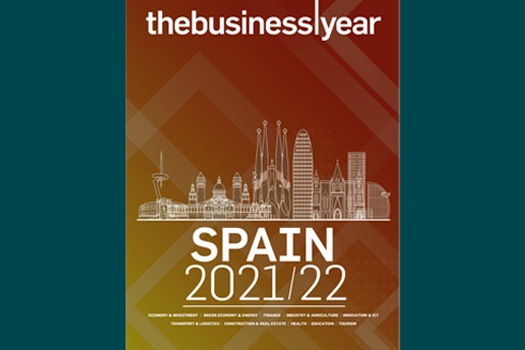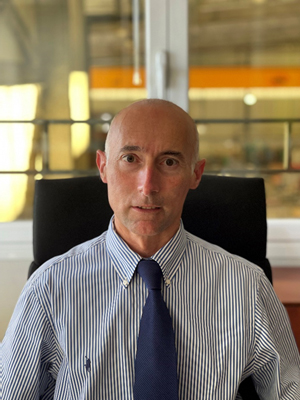How JHernando faces the future of the industry

The Business Year magazine recently conducted this interview with our CEO Juan Francisco Hernando about JHernando and how, with our sorting and conveyor systems, we are facing the future of the industry.
JHernando is a family business founded in 1966 that first launched with the manufacture of industrial conveyor belts and afterwards began to manufacture conveyor modules. Could you tell us about JHernando’s evolution?
At that time, our clients were engineering companies that bought our products and then sold the complete systems, automation included. In the 1990s, the rest of the family came on board, making up the three partners, who are brothers, we are today. We run the company together. Later on, we took on what was being sold to the engineering companies as our own and started selling turnkey installations to the sectors that had great growth projections at the time.
The family business maintains its proximity, adaptability, agility, as well as continued improvement. How do these values translate, and what added value do you provide compared to your competitors?
All these values are inherited. We communicate these values to our clients, and they are reflected in our way of working. Ultimately, it all comes down to quality. Proximity determines the way we work, which is perceived by the customer. Our service and its quality are the main added values that we provide; however, the greatest value of our company is its staff.
Strategic alliances have also been an important value for JHernando. What have these agreements implied for you?
Quality is the basis. We offer logistical solutions tailored to each customer. In many cases, an ideal solution or product has already been created. Through these partnerships with, we can supply their product from our premises. We have important partnerships, whereby it manufactures complex systems that we subsequently integrate. This proximity is perceived by the customer, who, as a result, receives the best product at a fair price.
Could you highlight a project that you are particularly proud of?
There have been many over the years. For instance, we recently implemented a high-speed sorting system for parcels and envelopes for a company in Madrid. It has been a great project, which handles 86 routes and 8,000 parcels per hour. The company successfully managed last year’s Black Friday thanks to this system. And in the last years we have carried out installations for the main courier and postal players globally, such as Correos Express, GLS, Dachser, TNT-Fedex, Seur-DPD, DHL, as well as for pharmaceutical and pharma logistic companies (GSK, Pfizer, Rovi, Bidafarma,...)
Approximately 87% of people in Spain claim to shop more online than pre pandemic, and these new purchasing habits are likely to continue in the future. How has this boom in e-commerce been for JHernando over the last year?
In terms of work and customer relations, we have been able to step up some projects and see them through. This has increased work in certain sectors, such as pharmaceutical logistics. Customers have experienced better service and on-time delivery. The pandemic has, in a sense, opened the doors to customers who have been buying from foreign manufacturers. There has been a great deal of work, and we have adapted our schedules. Prior to the pandemic, there were 95 workers, and our team is now 140 people strong.
What solutions can JHernando’s new e-commerce logistics equipment factory in Vallecas bring to the sector?
We have taken advantage of this time to accelerate this type of investment. In Vallecas, we had an old warehouse that we have converted into a new industrial plant. The market now demands faster, more flexible, and modular facilities. There, we will be able to manufacture modules in series correctly, quickly, and using an existing space.
What are JHernando’s goals for 2022, and what is the company’s vision for the coming years?
Our goal for 2022 is for our staff to thrive in these difficult times. On a business level, we have initiated a process of internationalization through our most important clients, which have served us as a gateway to enter the international stage. Portugal already stands as one of the most important markets for us, at 30-40% of our turnover. We have established connections with certain countries in South America and we are in the way of closing several partnership agreements in Brasil, Chile, Perú and Ecuador, and aim to replicate our successful business model in Spain and Portugal. We aim to demonstrate growth, as we have never done such international expansion before. It is, at the same time, extremely important that we continue to be seen as local in order to be successful in this respect.






